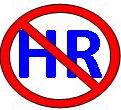A long while ago, I wrote a post about candidates who bypass human resources in the hiring process. Recently, there’s been some spirited discussion on this post. You can check out the original post and comments here.
In thinking about the comments, I wanted to share some additional thoughts. I haven’t changed my position. I would still caution people about bypassing human  resources to get an interview. I can’t help but think a department manager will always wonder when you’re going to bypass them. (FYI – In my experience, it’s when employees bypass the department to complain to HR about something. Oh yeah, remember you bypassed HR too…)
resources to get an interview. I can’t help but think a department manager will always wonder when you’re going to bypass them. (FYI – In my experience, it’s when employees bypass the department to complain to HR about something. Oh yeah, remember you bypassed HR too…)
But the comments took an interesting turn. The focus shifted to whether or not human resources should be a part of the recruiting process because, it was assumed, they don’t know the job. Which I think is a totally different subject.
I remember recruiting for technology positions years ago. I knew nothing about technology applications. So the candidate interviewed with the department first. If the department said they had the technical ability then they interviewed with HR to see if they were a good corporate fit. Of course, this always seemed backward to me because it put more work on the department. And I thought part of my job was to make the department’s life easier.
While I would never know as much as most of the technology candidates, I tried to learn a few things that would allow me to evaluate their technical ability. The department appreciated it. I learned a lot. And I think the candidates got a better experience.
Human resources needs to be involved in the recruiting process. And I’m not just saying that because I’m an HR pro. The process of designing jobs, analyzing staffing needs, creating a recruiting strategy and managing that plan is complex. It’s not – “Need a person. You fit the bill. Hired. Get to work.”
On top of that, it’s unfortunate to say but we live in a very litigious society and the interviewing process needs some level of consistency. HR has to bear the ‘consistency police’ label. That being said, human resources can provide value in the area of consistency by:
- Looking for top talent even when a requisition isn’t open
- Ensuring candidates align with the company’s culture and core competencies
- Forwarding candidates to department managers that consistently meet the job requirements
This makes the department manager’s job so much easier. They can focus on the specific skills of the position and departmental fit. Human resources and operational managers have to work together to create a hiring process that fits both the needs of the company and the department.
I want to thank everyone who commented on this post and challenged my thinking. It’s conversations like this one that allow us to re-examine what we do to make sure our actions are in alignment. Because the one thing that will help us all succeed is knowing that everyone is working in the best interest of the organization.







mukul says
good evening madam i am also an HR graduate looking for good internship programme overseas but was not able to a get a chance to put my hands on any of opportunity i finished my MBA in Human Resources and was not able to get good internship because of being a novice and a new comer none of the international big houses is entertaining me so kindly tell me or advice me what would be the requirement to make them at least interview me and then decide that i am talented enough or not but anyways i am great fan of your postings get to learn a lot from you keep flowing information like this to all of us and also i am pursuing Secretarial Course from Institute of Company Secretaries of India i belong to a very small village kind of town in India
Michael Brisciana says
Sharlyn,
I very much agree with your perspective on HR’s purpose and involvement regarding the recruiting process. Perhaps one idea I’d add to the discussion is . . .
. . . for me, the key issue is the conversation between the HR person/recruiter and the hiring manager at the beginning of the search.
In this conversation, when the “hiring specs” are decided upon, the recruiter needs to know from the hiring manager if they are looking for someone who explicitly meets all of the specific criteria — or, are they willing to consider an “out of the box” candidate or two (i.e., someone who has most of the skills/experience but for a variety of other reasons might be a less “traditional” candidate — perhaps they’ve followed a different career path in the past, seem to have a lot of upside potential but less experience on paper, etc.). I believe that it’s HR’s strict adherence to “the specs and only the specs” that forces less traditional (i.e., “less perfect on paper”) candidates to feel that they have to bypass HR in order to get seen by the hiring manager. If the hiring manager is open to it and HR is free to “use their intuition” at least a little bit, it could open up the recruiting process in a good way for everyone involved.
In any case, many thanks for a great discussion of an important HR topic.
Sharlyn Lauby says
Thanks for the comment Mukul. Good luck with your course!
Kristin says
Very interesting. I agree that HR may not know exactly what the manager is looking for or the exact job, but in an interview the company should also be trying to sell themselves. HR can probably do this job best as they know all the benefits that come with the given job better than the manager will. So, it may still be important for HR to interview the candidates first. Just a thought!! I am also a student getting my masters in Health Care Administration.
Sharlyn Lauby says
@Michael – Good point about understanding hiring requirements from the beginning. It really helps keep the process on track. Thanks for the comment!
@Kristin – Totally agree. Many candidates are interested in understanding benefits and most hiring managers defer to HR to handle. Thanks for sharing.
Jason Pereira says
HR should not be bypassed and neither should the Line Manager. Only when HR works closely with the business does it righfully earn the title of being a true ‘Business Partner’.
Some may argue that HR is not in a position to evaulate the technical knowledge of the candidate. But this is not what HR is trying to evaulate? We look for candidates who possess the core compentencies and a good background experience verified through reference checks. Jack Welch’s 4E’s and 1P is a good litmus test for hiring the right candidate.
Andy says
For a completely contrarian view, check out Nick Corcodilis at http://corcodilos.com/blog/
Sharlyn Lauby says
@Jason – Well said. Thanks for the comment.
@Andy – Thanks for sharing another POV.
Steve says
This is a very interesting conversation in that, some cases may vary depending on the scope of the position. I agree that someone in HR should be the one to preview candidates and then sent to the management team to conduct the final interview. This partnership is important on many fronts, not to mention understanding what your operations partner is looking for in a candidate. There are many valid comments here posted. I agree it is a joint effort. I do not think that managers should interview before HR because it seems backwards. However, I would be open to listening to others comments because it may not be an absolute in all situations (I think this is more common than not, but not closed to the idea that there may be a valid reason).
Sharlyn Lauby says
Thanks for the comment Steve. You’re right, it could be situational. I don’t think anyone likes being bypassed. Your suggestion to listen openly is spot on.
Mike43 says
In any large organization; I have always sent my resumes directly to the hiring manager.
That way, they get first look, and can help “pull” me through the HR process.
Is that a bypass? Perhaps, but direct contact is always best.
Archer says
Sorry, you guys can try to tell yourselves you are somehow relevant or earn your keep, but I’ve lost enough talent to the competition because of your bureaucratic (and quite frankly) sexist mindset. HR is largely deadweight and given the poor economy and requirement to cut costs, you better start asking the question “How can we help” and not “how dare you pass us by.”
Adam says
@Archer
Thank you for you contrarian point of view, the echo chamber was a getting a little noisy. HR is to me evidence that you are, or want to be, a big company. In my experience that means you think of me as a meat printer • an expendable work unit that is replaceable as soon as it stops performing it predetermined task. An inkjet printer that happens to be flesh and blood.
DeepThought says
Let’s be clear, I work in management in a Fortune 50 company with over 140k employees throughout the world.
I have yet to find a person who would not say in private that HR is a hinderance to the company.
It is nearly impossible to get rid of poor performing employees. We had a new hire who did not have a full week of employment during her first 17 weeks of her employment. One excuse after another.
We job failed her. What did HR do? Put her in another pool and some chump from another division hired her. Why did he hire her, becuase he was not allowed to ask about her ability to perform her job. HR should be relegated to the dust bins of coproate history and should be folded into legal.
They have given us nearly 20 years of sub par employees.
Peter says
The first round of filtering should be done by the hiring manager (HM) so that he/she can select/filter for “technical ability” as that is more important to them than “good corporate fit”. When applications are filtered through HR on their way to the HM, an automatic bias towards mediocrity comes into play when HR first filters the applicants based upon “good corporate fit” (GDF).
Candidates essentially come in one of four flavours: “able+GCF”, “able+not-GCF”, “unable+GCF”, and “unable+not-GCF”. When you first filter for “GCF”, not only do you get rid of “unable+not-GCF”, but you also get rid of “able+not-GCF”. When the hiring receives the filtered-by-HR applications, really talented (able) applicants have already been rejected. The best candidates (and HMs) prize ability more than “GCF”. This means that in practice, their “GCF” skills are often less developed because they have been focusing so much on ability.
Obviously, this is not true for all cases, but there is a strong statistical bias in this direction. Because of this statistical bias, this means that statistically, those in the “able+GCF” category tend to be more mediocre.
So, what do you want–excellence or mediocrity? If you want mediocrity, let HR filter the resumes before the HM. If you want excellence, let the HM filter the resumes before HR.
Archer says
Big or small, it’s the quality and skill level of people who go into HR that screws things up. I don’t have time for childish girls playing make-believe “professional” when my employer (and consequently) my compensation is dependent upon performance. I need good people with skills, not robots that know how to answer cookie cutter questions developed in academia and parroted out by (as the Captain points out) “25 year old ditzes.”
Ceer says
During my last job interview, I interviewed with the hiring manager, who was in charge with an entire department. We discussed my qualifications. He then notified HR of his decision, and I started in that position 2 days later. Any time I have dealt with a HR department for a position, the answer has always been delayed…usually for months.
Suzann says
I bypass HR whenever possible and have found HR to be a roadblock on many occasions. If I had not bypassed HR in order to pursue my current job, both my hiring manager and myself would have missed a wonderful opportunity.
Initially I always attempt to go through the proper channels first but will then apply gentle but firm pressure if I’m not getting anywhere. You have to be your own advocate.
You mention in the post that hiring managers may be fearful tha you would go over their head at some point. That is an exaggerated comment and has not been my experience. As long as you’re professional, I think it’s welcomed.